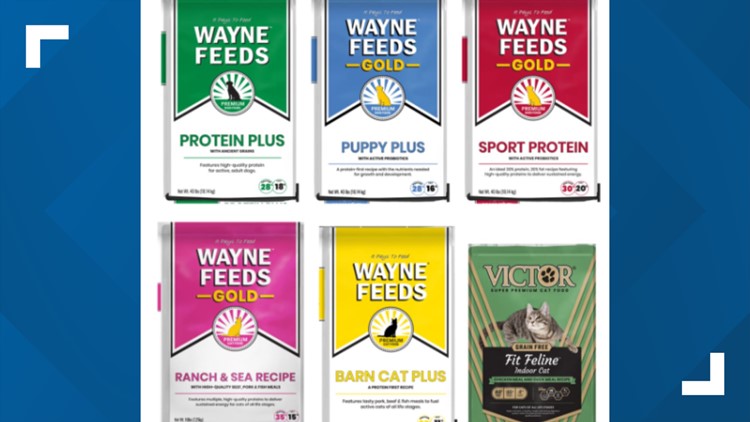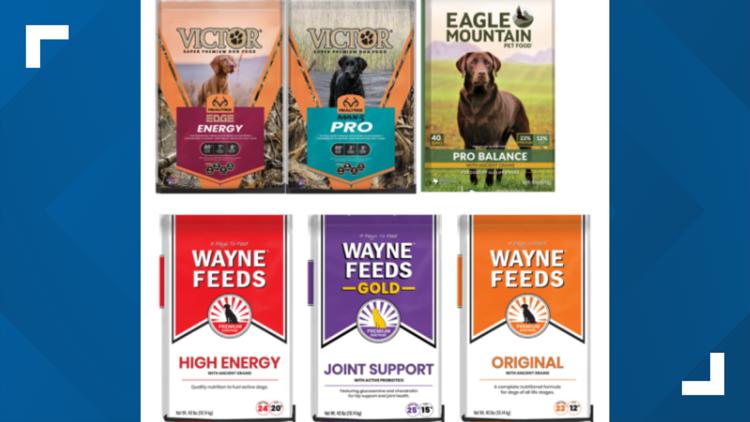HUNTSVILLE, Ala. — The Centers for Disease Control says an outbreak of salmonella infections is connected to several brands of dry dog food, which are now under a recall notice. At least one person has been hospitalized; the CDC says seven people have been sickened as of Nov. 9; the illnesses have been reported in California, Oklahoma, Minnesota, Kentucky, Alabama, and Florida.
Most of the sick people in this outbreak are infants under age one. Young children are more likely to get a severe salmonella infection because their immune systems are still developing. Infants and young children can get sick from contaminated pet food if they have access to pet food bowls on the floor, handle or put pet food in their mouths, or if caregivers don’t wash hands after feeding pets.
Affected brands include Victor Super Premium Dog Foods, Wayne Feeds Dog Food, Eagle Mountain, and Member's Mark (Sam's Club). Click here for more information regarding affected items.
GALLERY: Pet food recall
More information from the CDC:
What Pet Owners Should Do:
- Throw away recalled pet food in a sealed trash bag and place it in a sealed trash can.
- Don’t let children touch the recalled pet food.
- Don’t feed recalled pet food to pets or other animals.
- Don’t donate recalled pet food.
- Clean surfaces and items, including pet items, that might have touched the recalled pet food. Wash your hands after feeding your pets or touching pet items.
- Contact the pet food company if you have any questions about the recall.
- Email info@mapf.com or call 1-888-428-7544 from 8 AM to 5 PM Central Time, Monday through Friday.
Stores have been notified not to sell, use, or donate the affected items and to sanitize areas that may have come into contact with the recalled food.
Salmonella Symptoms in People and Pets:
- Most people infected with Salmonella experience diarrhea, fever, and stomach cramps.
- Symptoms usually start 6 hours to 6 days after swallowing the bacteria.
- Most people recover without treatment after 4 to 7 days.
- Some people—especially children younger than 5 years, adults 65 years and older, and people with weakened immune systems—may experience more severe illnesses that require medical treatment or hospitalization.
- For more information about Salmonella, see the Salmonella Questions and Answers page.
- Most pets don’t get sick from Salmonella, but they can spread the germ through their poop and saliva.
- Pets with a health problem and young pets are more likely to get sick from Salmonella. Symptoms include vomiting, diarrhea (may be bloody), fever, loss of appetite, and decreased activity level.
- For more information, see FDA’s Salmonellosis in Dogs and Cats page.














